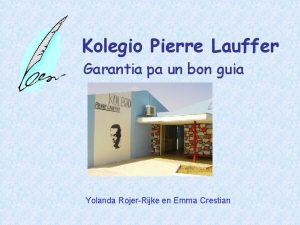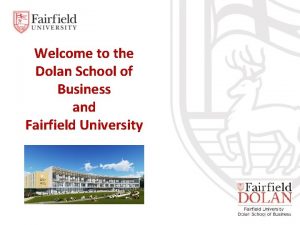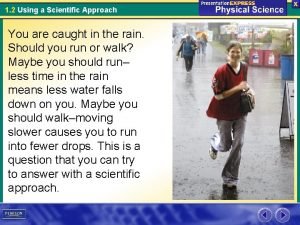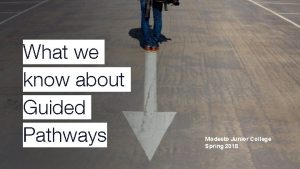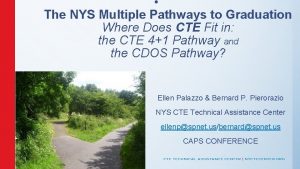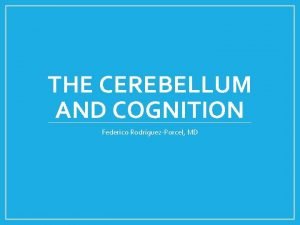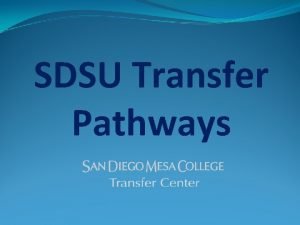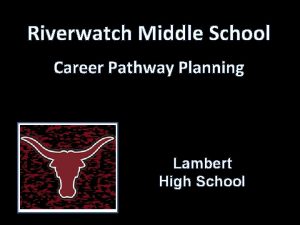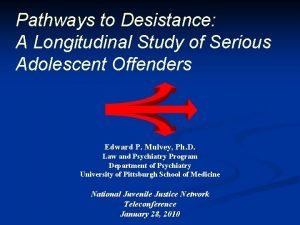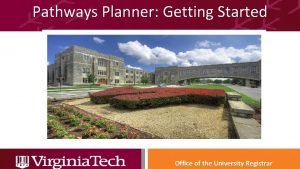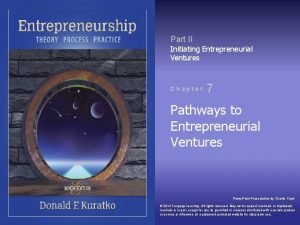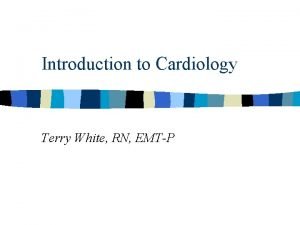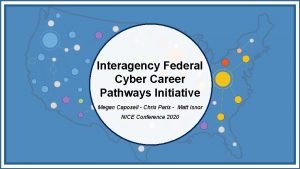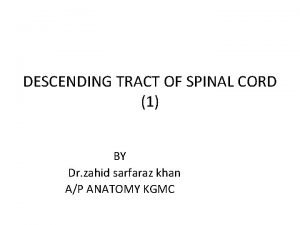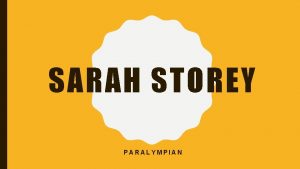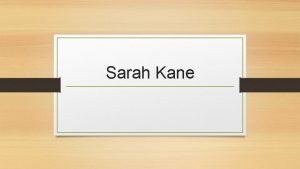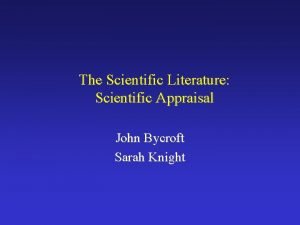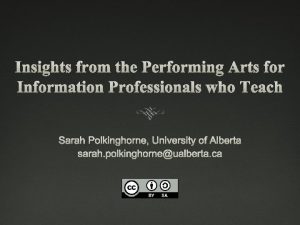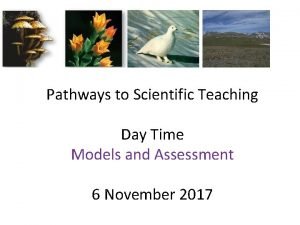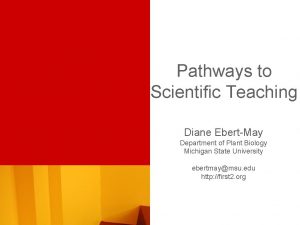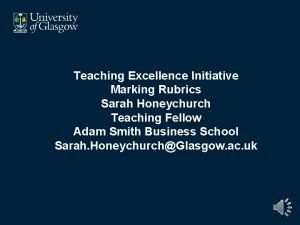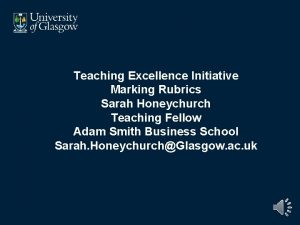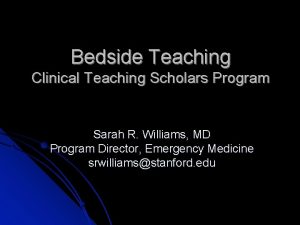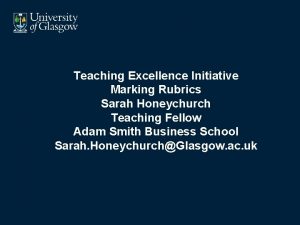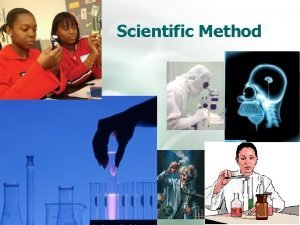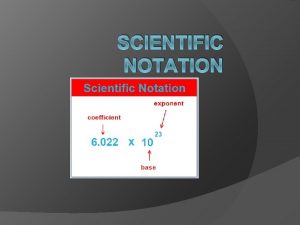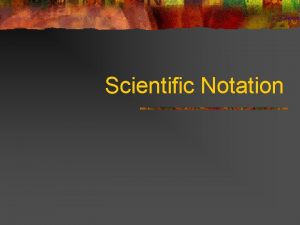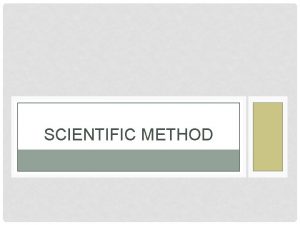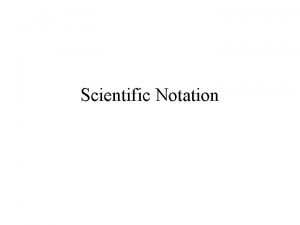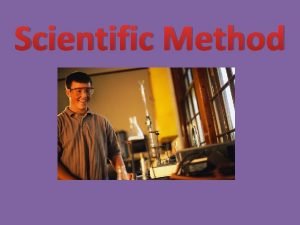Pathways to Scientific Teaching Sarah Lauffer University of






















- Slides: 22

Pathways to Scientific Teaching Sarah Lauffer University of Wisconsin Diane Ebert-May Michigan State University

Instructional Design. Engage Learning Cycle Explore Explain/Elaborate Assess

Engage

Question 1 Please respond on a scale of 1 -5: 1=strongly agree; 2=agree; 3=neutral; 4= disagree; 5=strongly disagree Scientific teaching forms the core of my teaching philosophy.

Question 2 Please respond on a scale of 1 -5: 1=strongly agree; 2=agree; 3=neutral; 4= disagree; 5=strongly disagree Students learn science best by doing science.






Question 3 Please respond on a scale of 1 -5: 1=strongly agree; 2=agree; 3=neutral; 4= disagree; 5=strongly disagree Science should be taught as it is practiced.

Learners doing science. . .

Question 4 Please respond on a scale if 0 -100 in increments of 10: How important is it to use multiple kinds of data to assess student learning?

Question 5 Please respond on a scale of 0 - 100 in increments of 10: What percent of the assessment data from your students do you use to make instructional decisions?

Question 6 Please respond on a scale of 1 -5: 1=strongly agree; 2=agree; 3=neutral; 4= disagree; 5=strongly disagree Scientific teaching usually occurs in lecture classes (large or small) in my department.

Question 7 Please respond on a scale of 1 -5: =strongly agree; 2=agree; 3=neutral; 4= disagree; 5=strongly disagree In my department, excellence/scholarship in teaching is rewarded at a level comparable to excellence/scholarship in research.


Explore

Identify desired outcomes Determine acceptable evidence Design learning experiences and instruction Wiggins and Mc. Tighe 1998

Exploring Scientific Teaching. . . in groups by discipline 10 minutes Identify one teaching challenge for an introductory course Develop 3 learning objectives Design/select 3 types of assessments for each objective that demonstrates students achieved the objective.

Exploring Scientific Teaching (cont. ) 20 minutes Go to the ST paper - on-line resources What teaching challenges have other people identified about your topic? How have they resolved them? What data do they present? Do you accept the data? Will your peers accept the data? Prepare a report - select reporter

Scientific Teaching Active is learning by doing Assessment is evidence Diversity is science for all. . .
 Contracautela
Contracautela Pathways to birmingham partner school
Pathways to birmingham partner school German education system
German education system Dolan school of business
Dolan school of business Sarah michaels clark university
Sarah michaels clark university Information gathered during an experiment
Information gathered during an experiment How is a scientific law different from a scientific theory?
How is a scientific law different from a scientific theory? Difference between traditional teaching and micro teaching
Difference between traditional teaching and micro teaching St. cloud state university co-teaching model
St. cloud state university co-teaching model Pathways modesto
Pathways modesto Nys graduation pathways
Nys graduation pathways Corticospinal tract
Corticospinal tract South forsyth high school pathways
South forsyth high school pathways Sdsu transfer pathways
Sdsu transfer pathways Lambert high school pathways
Lambert high school pathways Pathways to desistance
Pathways to desistance Pathways planner
Pathways planner Chapter 7: pathways to entrepreneurial ventures
Chapter 7: pathways to entrepreneurial ventures Depolarization and repolarization
Depolarization and repolarization Cyber career pathways tool
Cyber career pathways tool All metabolic pathways
All metabolic pathways Base excision repair vs mismatch repair
Base excision repair vs mismatch repair Pyramidal tract
Pyramidal tract
